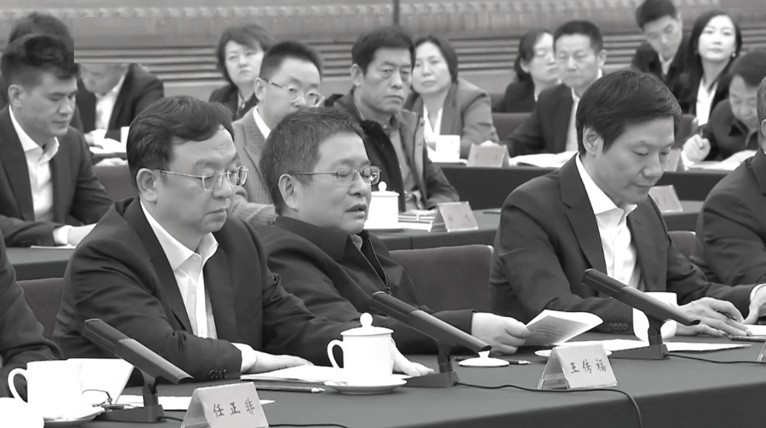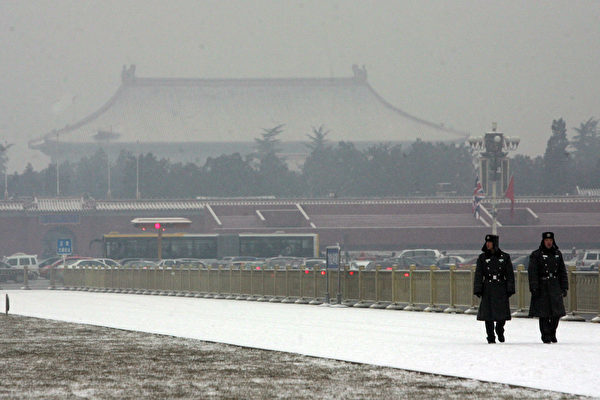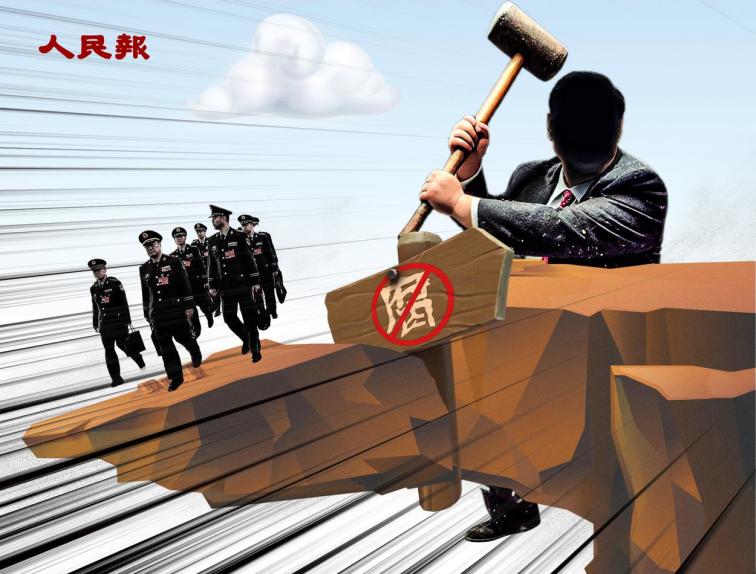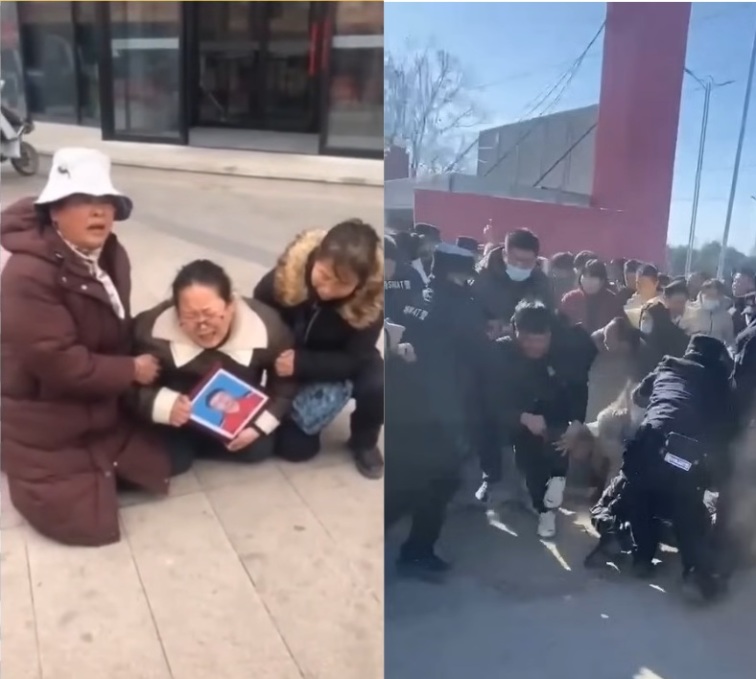On February 17, several private business leaders attended a CCP forum on private enterprises, but their expressions were somber, with no signs of joy over receiving government support. (Video screenshot)
[People News] On February 17, CCP leader Xi Jinping held a meeting with several private enterprise leaders, attracting widespread attention. Some media outlets speculated that the authorities intended to signal their support for private enterprises and boost confidence in China’s private sector. However, on the same day, China’s three major stock indexes all fell, with the Shanghai Composite, Shenzhen Composite, and ChiNext Index each dropping nearly 1% to 2% by market close. Trading volumes also shrank, and the anticipated market rally did not materialize. Some media reports pointed out that the meeting lacked any new measures, further disappointing the market. One netizen commented that "the destruction of the CCP is inevitable. Any moves by the CCP and Xi Jinping aimed at preserving the Party are acts that go against nature and will never succeed."
On February 18, China’s stock market opened with small declines across the Shanghai, Shenzhen, and ChiNext indexes, reflecting a slightly disappointed market sentiment. After 10:30 a.m., significant buying briefly pushed all three indexes into positive territory, with both the Shanghai and Shenzhen indexes turning green by midday. However, within half an hour of the afternoon session, selling pressure surged, dragging all three indexes downward until market close, with no signs of recovery.
In terms of trading volume, the combined turnover for the Shanghai and Shenzhen markets totaled RMB 1.7991 trillion, a decrease of RMB 142.4 billion from the previous trading day. Net capital outflow from the broader market exceeded RMB 122.9 billion.
Due to the weak market trend and sell-offs, only 731 stocks across the Shanghai and Shenzhen markets rose, with 53 hitting their upper price limit. However, 4,626 stocks fell, with 21 hitting their lower price limit.
According to Dajiyuan, popular financial blogger "Shenzhen Jin Changyang" commented: "Tuesday’s market behavior left not only small retail investors confused, but also institutional and foreign investors! Everyone in the A-share market expected the market to rise this week, but instead, the highly controlled market went in the opposite direction. Even the ‘landlord’s house’ is out of food! The market’s midday sell-off drove many retail investors to sell in panic." The blogger continued: "With such a tragic and dismal scene today, what about tomorrow? Will there be a symbolic sweetener after a hard slap? You harvest a cow and at least throw a chicken egg its way! Otherwise, the sea of red from over 4,600 stocks will haunt the market like a lingering ghost!"
NTD Television pointed out that foreign media believe this private enterprise meeting offered no new ideas, once again disappointing the market. The "positive market sentiment" manufactured by authorities manipulating public opinion merely gave investors an opportunity to sell high and cash out.
Singapore's Lianhe Zaobao quoted Shen Meng, Executive Director of Chanson Capital, who analyzed that the meeting only discussed "the same old issues" and did not provide clear solutions to the challenges facing private enterprises. The market had originally anticipated more "new policy proposals" from the meeting.
At the meeting on Monday, Xi Jinping, who has promoted the "state advances, private sector retreats" policy for years, once again used the "Deng Xiaoping-era" slogan of "those who get rich first should help others prosper" in an attempt to reassure private enterprises.
Li Hengqing, an economist at the U.S.-based Institute for Information and Strategy, commented on X (formerly Twitter) that Xi continued to lecture private enterprises, stating that "whatever the Party Central Committee decides must be firmly executed without compromise." This indicates that the authorities "cannot shake off their authoritarian habits," and any talk of "strengthening the rule of law for a better business environment in China" is meaningless.
Epoch Times columnist Wang He analyzed that China’s stock market is constrained by multiple factors, making it difficult to stabilize. The greatest constraint is the high level of uncertainty in China’s situation, with an economy in turmoil, intense political infighting, and widespread public discontent, all leading to a severe lack of confidence. As the stock market saying goes: "The stock market is never short of funds, only short of investor confidence." This represents the ultimate constraint on stabilizing the market.
Commentator Dr. Jason also noted in his independent media program that the relationship between the CCP and private enterprises is always one of "master and servant." Without acknowledging this premise, any other discussions are nothing but empty talk and wishful thinking.










News magazine bootstrap themes!
I like this themes, fast loading and look profesional
Thank you Carlos!
You're welcome!
Please support me with give positive rating!
Yes Sure!